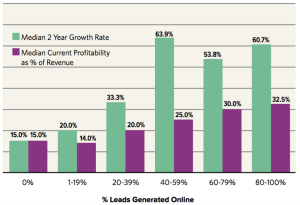Would you like to have employees who are bold in their decision-making, strong in their convictions, and empowered to do what they think is right—to truly give you their best work and their highest level of effort, day in and day out?
Or would you rather have employees who are chronically unsure, uncertain, and wishy-washy—never wanting to do anything decisive without you giving them the green light or offering to hold their hand?
Most leaders would prefer the former, and it’s not hard to understand why: Having a true team means having employees who feel confident in contributing, and in using the talents and gifts that made you hire them in the first place.
Where Does Culture Enter The Equation?
But would you believe that, to a large extent, your company culture decides whether employees act confidently or hesitantly? It’s true: Your workplace values and vision can go a long way toward either cultivating or undermining employee confidence.
So if you’re looking to establish a culture that creates confidence, here are some tips you may want to consider.
Help your employees to build awareness of their strengths. The more comfortable they feel identifying their own strong points, the more confidence they’ll have in acting on those strong points. In particular, you can encourage reflection and journaling, asking employees to spend time thinking about the workplace activities that most energize them; you can also share positive gleanings from your own performance reviews, or peer performance reviews.
Brainstorm ways to make those strengths even more productive. Speak with employees about their strengths, but encourage them to go beyond self-awareness. Ask them to work with you to think up different ways their strengths can add value to the office.
Give praise where praise is due. Always offer public affirmation and gratitude for significant achievements—letting employees know that their good work is not just noticed, but appreciated.
Be constructive in your feedback. You can and should share ways your employees can get better, but make sure to balance the bad with the good and to offer specific ways they can do so—not just vague criticisms or disapprovals.
Lead by example. Whatever you do, don’t spend time beating yourself up or publically harping on your own shortcomings. Recognize the ways in which you need to improve, then move on!
Ultimately, building a culture of confidence starts with you, the leader!
Business & Finance Articles on Business 2 Community(42)





